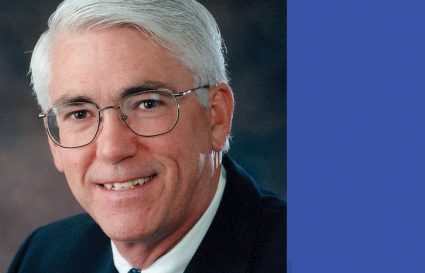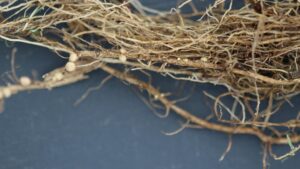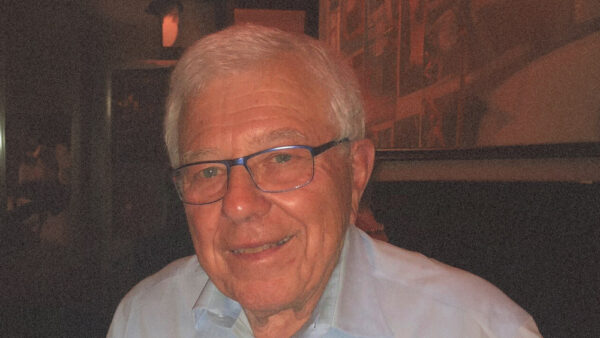Since 2012, violence inflicted by Boko Haram and other extremists has uprooted tens of thousands of Nigerians from their communities. Entire villages abandoned. Bridges bombed. Churches burned. Crops and livestock left unattended.
Many died, and more continue to exist in resettlement camps in Nigeria and Cameroon as dislocated persons, having nothing to return to and without resources to go elsewhere. But now that the conflict is subsiding, some are returning to their village areas, looking to begin anew.
In 2017, the U.S. Church of Brethren began to introduce soybean in the devastated northeast region of Nigeria, primarily the states of Adamawa, Bauchi, Borno, Gombe, Tarabe and Yobe. The church’s Global Food Initiative manager, Jeff Boshart, explains that soybean was selected as the denomination’s preferred redevelopment engine to complement its long-standing mission and disaster aid presence in Nigeria. Soybeans are important cash and food crops in other regions of Nigeria — why not in the northeast?
As recent as September, Boshart and two U.S. colleagues, a United States Agency for International Development (USAID) Soybean Innovation Lab researcher and a practicing veterinarian, visited the bereft region, which still routinely encounters acts of insurgency. Their goal was to interact with farmers and practitioners engaged in the 2018 Ekklesiyar Yan’uwa A Nigeria (EYN) Soybean Value Chain Programme.
With headquarters near the borders of Cameroon and Chad, EYN is the church’s in-country implementation partner and houses its Integrated Community-Based Development Programme, an active six-member steering committee, comprised of volunteers who have returned to their village and are rebuilding their homes and their communities.
Support and Success
The project was initiated prior to the beginning of the 2017 growing season and now the 2018 production season is winding down with harvest and threshing activities nearing completion. During his September visit, Boshart shared with the EYN their intent to provide stable funding for EYN’s program efforts spanning three additional growing seasons (2019-2021). This corresponded with a recent announcement from USAID that funding for the Soybean Innovation Lab will be extended through 2021.
Boshart indicated this to be a minimal commitment, as the Church of Brethren hopes to provide greater support to expand the project. Production and agronomic training will continue to be an annual focus. Greater emphasis will be placed on home processing and utilization of soybean beginning in 2019. The goal here is to enhance household nutrition and spur development of micro-enterprises that process soybeans into highly nutritious consumable food products. To that end, the church and EYN are gearing up to promote the formation and operation of more cooperative groups.
As an example, in 2017 a group of five women formed Victory Soybean Coop, a well-organized and highly functional cooperative. Tabitha Sunday Wabba, who was a displaced person, chairs the coop. Ruth Dibal acts as secretary, and Zinaria Docta chairs the finances. In 2018, Victory Soybean Coop expanded from five members to nine members. Looking ahead, they hope to incorporate a savings and loan business component to further strengthen the coop.
Wabba and two EYN volunteer technical consultants were recently sponsored by the Church of Brethren to participate in an experiential learning tour in Ghana. Their goal was to gain knowledge about the overall soybean value chain, more specifically about small-scale processing and its potential as a growth opportunity for Nigerian soybean producer coops.
The consultants included Jummai Auta, a nutritionist and Kefas John Usman, a private sector agronomist and chairman of the EYN steering committee. The activity was organized and coordinated by the USAID Soybean Innovation Lab.
The USAID Soybean Innovation Lab has collaborated on the project since its inception with a focus on seed systems and social outreach. The principal investigator has visited Nigeria three times and led two experiential soybean value chain learning tours to Ghana for delegations.
As shown by USAID’s support, there is tremendous opportunity for soybean to play a vital role in the rebuilding of this region.













